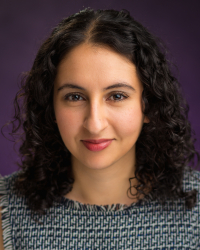Ethnicity and Conflict in Iraq's Oil City: A History of Kirkuk
Arbella Bet-Shlimon, Associate Professor, Department of History, University of Washington
Abstract
Kirkuk is Iraq’s most multilingual city, for millennia home to a diverse population. It was also where, in 1927, a foreign company first struck oil in Iraq. Kirkuk soon became the heart of Iraq’s booming petroleum industry. Over the decades that followed, oil, urbanization, and colonialism shaped the identities of Kirkuk’s citizens, forming the foundation of an ethnic conflict. In the early 1920s, when the Iraqi state was formed under British administration, group identities in Kirkuk were fluid. But as the oil industry fostered colonial power and Baghdad’s influence over Kirkuk, intercommunal violence and competing claims to the city’s history took hold. The ethnicities of Kurds, Turkmens, and Arabs in Kirkuk were formed throughout a century of urban development, interactions between communities, and political mobilization. Ultimately, this lecture argues that contentious politics in disputed areas are not primordial traits of those regions, but are a modern phenomenon tightly bound to the society and economics of urban life.
Arbella Bet-Shlimon is Associate Professor of History at the University of Washington. In her research and teaching, she focuses on twentieth-century Iraq and the Persian Gulf region as well as Middle Eastern urban history. Dr. Bet-Shlimon is the author of City of Black Gold: Oil, Ethnicity, and the Making of Modern Kirkuk (Stanford University Press, 2019).

